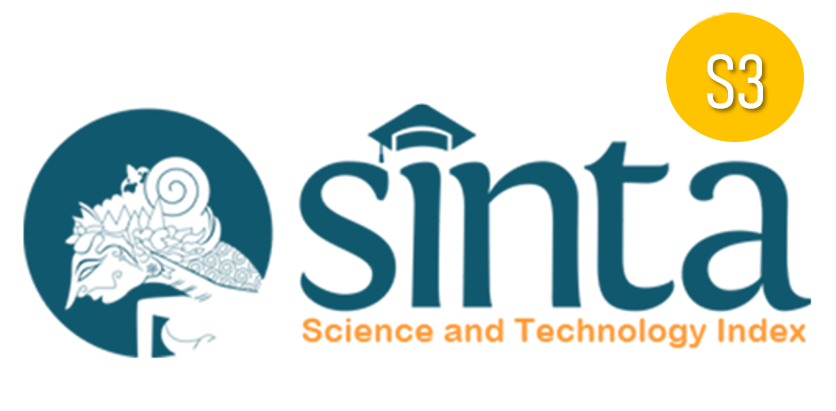Navigating the Future of Artificial Intelligence: Innovations, Ethical Dilemmas, and Societal Impact
Abstract
Keywords
Full Text:
PDFReferences
Abdulrahaman, M. D., Faruk, N., Oloyede, A. A., Surajudeen-Bakinde, N. T., Olawoyin, L. A., and Al-Khassawneh, Y.A. (2023). A review of artificial intelligence in security and privacy: Research advances, applications, opportunities, and challenges. Indonesian Journal of Science and Technology, 8(1), 79-96.
Al Husaeni, D.F., Haristiani, N., Wahyudin, W., and Rasim, R. (2024). Chatbot artificial intelligence as educational tools in science and engineering education: A literature review and bibliometric mapping analysis with its advantages and disadvantages. ASEAN Journal of Science and Engineering, 4(1), 93-118.
Bathla, G., Bhadane, K., Singh, R. K., Kumar, R., Aluvalu, R., Krishnamurthi, R., and Basheer, S. (2022). Autonomous vehicles and intelligent automation: Applications, challenges, and opportunities. Mobile Information Systems, 2022(1), 7632892.
Chan, H. W. H., & Lo, N. P. K. (2025). A Study on human rights impact with the advancement of artificial intelligence. Journal of Posthumanism, 5(2), 1114-1153.
Dikshit, S., Atiq, A., Shahid, M., Dwivedi, V., and Thusu, A. (2023). The use of artificial intelligence to optimize the routing of vehicles and reduce traffic congestion in urban areas. EAI Endorsed Transactions on Energy Web, 10, 1-13.
Freeman, L. (2021). Weapons of war, tools of justice: using artificial intelligence to investigate international crimes. Journal of International Criminal Justice, 19(1), 35-53.
Hossain, K. A. (2023). Analysis of present and future use of artificial intelligence (ai) in line of fouth industrial revolution (4ir). Scientific Research Journal, 11, 1-50.
Ibrahim, I. M., Elghafar, M., Mohamed, M., Ayoub, M., and Abuhadrous, I. (2024). AI-powered parking management systems: a review of applications and challenges. Advanced Sciences and Technology Journal, 1(2), 1-22.
Iyer, L. S. (2021). AI enabled applications towards intelligent transportation. Transportation Engineering, 5, 100083.
Jagatheesaperumal, S. K., Bibri, S. E., Huang, J., Rajapandian, J., and Parthiban, B. (2024). Artificial intelligence of things for smart cities: advanced solutions for enhancing transportation safety. Computational Urban Science, 4(1), 10.
Ntoutsi, E., Fafalios, P., Gadiraju, U., Iosifidis, V., Nejdl, W., Vidal, M. E., and Staab, S. (2020). Bias in data‐driven artificial intelligence systems—An introductory survey. Wiley Interdisciplinary Reviews: Data Mining and Knowledge Discovery, 10(3), e1356.
Nurhasanah, S., and Nugraha, M.S. (2024). The future of learning: ethical and philosophical implications of artificial intelligence (AI) integration in education. Indonesian Journal of Multidiciplinary Research, 4(2), 341-352.
Olawale, M. A., Ayeh, A. A., Adekola, F. O., Precious, A. S., Joshua, A. O., and Timothy, O. (2023). A review on the intersection of artificial intelligence on building resilient infrastructure, promoting inclusive and sustainable industrialization and fostering. Innovation of International Journal of Engineering Modern and Technology, 9(3), 1-31.
Patel, P., and Thakkar, A. (2020). The upsurge of deep learning for computer vision applications. International Journal of Electrical and Computer Engineering, 10(1), 538.
Patel, R., and Desai, A. (2024). Exploring the ethical implications of ai-powered security systems. Asian American Research Letters Journal, 1(9), 87-95.
Razzaq, K., and Shah, M. (2025). Machine learning and deep learning paradigms: From techniques to practical applications and research frontiers. Computers, 14(3), 93.
Sayyad, S., Kumar, S., Bongale, A., Kamat, P., Patil, S., and Kotecha, K. (2021). Data-driven remaining useful life estimation for milling process: sensors, algorithms, datasets, and future directions. IEEE Access, 9, 110255-110286.
Thompson, S. (2022). Artificial intelligence, big data, and the ethical problem: balancing responsibility with ingenuity. EPH-International Journal of Science and Engineering, 8(4), 15-31.
Zeb, S., Nizamullah, F. N. U., Abbasi, N., and Fahad, M. (2024). AI in healthcare: revolutionizing diagnosis and therapy. International Journal of Multidisciplinary Sciences and Arts, 3(3), 118-128.
DOI: https://doi.org/10.17509/ijert.v5i1.82686
Refbacks
- There are currently no refbacks.
Copyright (c) 2025 Universitas Pendidikan Indonesia (UPI)

This work is licensed under a Creative Commons Attribution-ShareAlike 4.0 International License.







.png)




